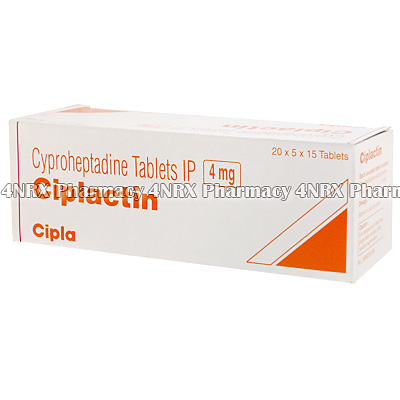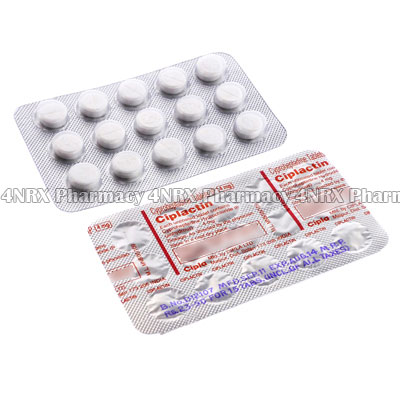 |
Home  Allergies Allergies  Ciplactin (Cyproheptadine) Ciplactin (Cyproheptadine) |
|
|||||||||
|
|
Ciplactin (Cyproheptadine)
What is Ciplactin (Cyproheptadine) used for? Ciplactin (Cyproheptadine) is used to treat the symptoms of allergies such as sneezing, watery eyes, or a runny nose. The medication is an antihistamine that operates by suppressing immune responses that cause irritation and discomfort associated with this condition. Your physician may also prescribe it to treat other conditions that are not listed here. How should I use Ciplactin (Cyproheptadine)? Follow your physician's instructions for using Ciplactin (Cyproheptadine) to get the most effective results from treatment. It is normally taken orally two to three times each day, but your individual dosage and frequency of application will depend on the severity of your symptoms and current health condition. Always swallow the tablets whole along with a full glass of water as changing their form by splitting, chewing, or crushing them may destroy or alter the effects of the contents. If you have any questions about using the medicine, ask your pharmacist or doctor to ensure the correct application. What are the side effects of Ciplactin (Cyproheptadine)? Some side effects that have been reported by patients taking Ciplactin (Cyproheptadine) include:
Consult your physician immediately if any of these side effects persist or worsen, or if you notice changes in mood, unusual excitement, difficulty urinating, a fast pounding heartbeat, hallucinations, seizures, persistent vomiting, severe stomach pain, yellowing of the eyes or skin or unusual fatigue. These conditions may require emergency medical attention or adjustments to your treatment to prevent further complications from occurring. Please Note Strictly follow all instructions provided to you by your physician or pharmacist while using Ciplactin (Cyproheptadine). Optimum and safe dosage can differ based on the patient and the condition being treated. As this medication may be unsafe for certain patients, it is essential you always inform your physician if you are pregnant or breastfeeding, as well as if you have any allergies, other illnesses, or ongoing health conditions, especially asthma, glaucoma, thyroid problems, heart disease, kidney problems or hypertension, and if you are taking any other form of medication, supplements, or herbal products. This medication should not be given to children unless told to do so by a physician. Immediately seek emergency medical care if you have any allergic or hypersensitive reaction. Common signs of a reaction include hives, swelling, skin rashes, chest pains, as well as trouble breathing or swallowing. 

|
||||||||||||||||||||||